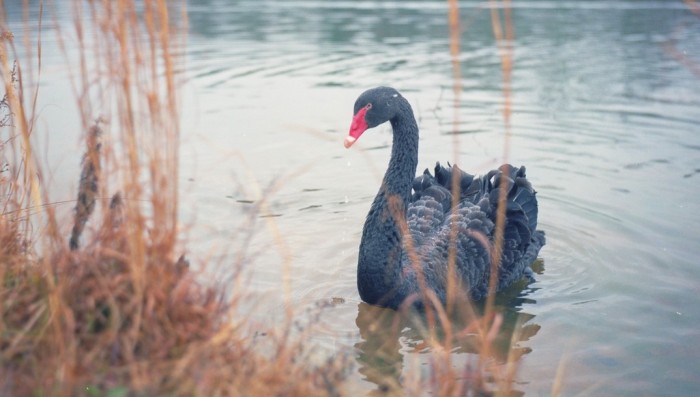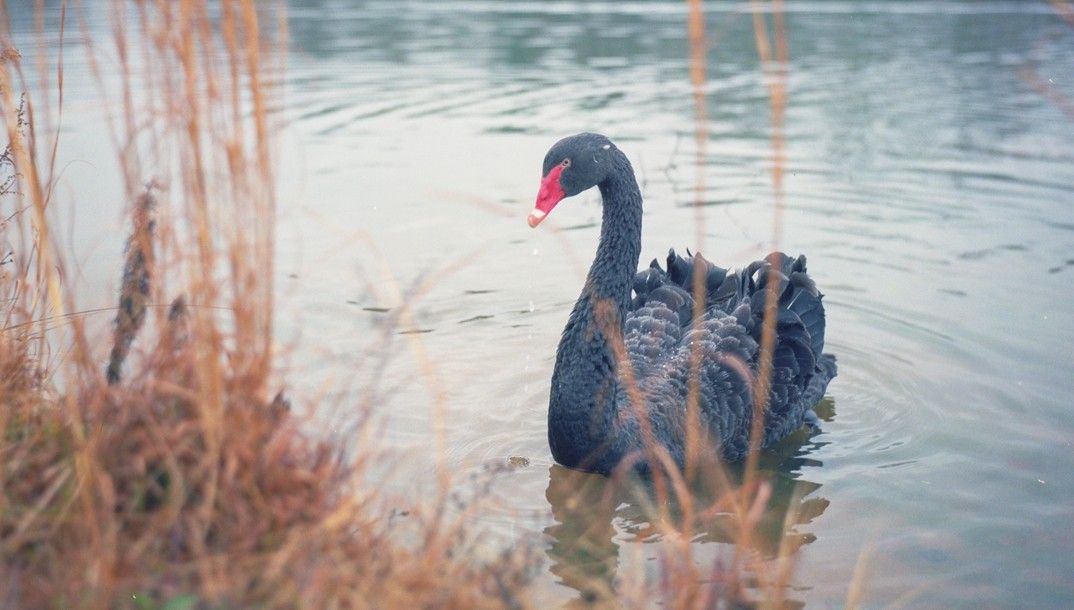
The Paladin's 2013-2014 sports editor, opinions editor, and editor-in-chief each share their parting thoughts concerning the university paper, the role and future of journalism, and reaching the end of their Furman careers.
Trent McCann, Sports Editor
To be honest, I didn’t read The Paladin before I started working for the paper two years ago. To be brutally honest, I didn’t even read every issue we produced this year. I know that many of the students on campus also do not read the paper, as print news is dying, and rather quickly. However, I think that, especially on a small, tight-knit campus such as Furman’s, the student-run campus newspaper functions as more than just a source of news.
The Paladin fosters a sense of community on a campus which can seem deceivingly large. Furman students are extremely busy people with great ambitions. The Paladin is a way to spread this information to fellow students as well as faculty members, who may not find out about it any other way.
As the sports editor, I’ve had the enjoyable experience of tracking the progress of Furman athletics both on and off the field this year. Our fellow students who compete for the Paladins on the field are extremely dedicated student-athletes who deserve to be recognized by their peers. I’ve enjoyed the experience of helping spread this information.
I don’t know what the future of journalism is going to look like, but I imagine it won’t be printing stories out on paper for people to read. As we transition further into the era of technology and instant gratification, I hope that The Paladin manages to stay afloat and students come to understand the high level of achievement that happens here on Furman’s campus.
Working with the staff of The Paladin has been a great experience, and I feel lucky to have had this opportunity. I hope that any of you reading this take any opportunities to get more involved on campus as they come your way, because you never know what you’re going to enjoy doing most. Before this year I had never had any experience with journalism or editing, but if you don’t take a chance you won’t know what you can do.
I want to thank my writers and fellow editors for the time and effort that they contributed to help make The Paladin what it is. I’ve enjoyed working in our small, cramped office late into the night, making sure that we only have the best of copy.
Jacob Zimmerman, Opinions Editor
A writer writing about writing is one of the most hackneyed tropes in journalism and literature. As I write this, I am sitting on a couch surrounded by friends, watching Atlanta play Washington in baseball while Samuel Barber’s first symphony plays in the background, taking a break from writing the first draft of an editorial explaining why the Paladin is publishing financial information from 2012 and remembering my two years as opinions editor. In words, experiences seem sentimental, a part of some larger story — self-reflection makes the messy realities of life neater, and less beautiful.
Journalism is not a glorious activity. Sunday nights become Monday mornings working on layout to produce an issue, a collection of articles stamped onto a page that will be obsolete in three weeks. Worthwhile moments — witty sentences, well-placed adjectives, subtle arguments — pass by almost as quickly as the words form, subsumed in the worthwhile but transient process of reporting and analyzing the news. The hope is that these arrangements of words can and will deliver facts, participate in conversations, and describe Furman and its inhabitants in provocative and insightful ways.
One of our major goals for the opinions section this year was to actively participate in discourses in which this newspaper was before only a passive observer, modeling what being a constructive but vocal part of Furman’s community should look like. While I do think that we have always succeeded in the task, I would hope that the opinions section has been a vessel for new ideas and worthwhile analysis as part of The Paladin’s attempt to distill rumor and hype into a truer account of Furman University this year.
Even this idealized recollection is too glossy. Journalism is not Greek tragedy or heroic struggle. I write because saying something is better than staying silent. More importantly, I work as an editor to provide a space for others to express themselves and to assist them in doing so.
So much of journalistic writing, even opinions and editorial writing, requires one to remove oneself from the language, orienting toward facts and relationships instead of one’s own sense of self. Journalism and autobiography are diametrically opposed genres — journalism is about doing, not thinking about what one has done.
Atlanta won in the tenth inning. They play the Nationals again tomorrow, what will be Saturday, April 11, by the time this piece of writing has made its way from the head editor, to the copy editor, to the page, to the stand. When I edit this again, sometime Sunday during preparation for the issue, I will have the opportunity to look and see whether Atlanta wins again. Perhaps I will decide this paragraph is inessential and I will eliminate it, but right now, sitting on this couch as my friends leave the apartment, I hope that I do not.
Bryan Betts, Editor-in-Chief
In 2006, the American writer and wit Kurt Vonnegut, author of the novel Slaughterhouse-Five and a former collegiate and professional journalist, received a request from a group of students to make an appearance at their New York high school. In his written reply, Vonnegut declined to visit, citing the fact that he had come to “resemble nothing so much as an iguana” in his old age, but he also enjoined the students to practice an art — be it poetry, dancing, journalism, or otherwise — without regard for quality or monetary compensation, for the sake of the process itself.
Along those lines, Vonnegut also gave the students an assignment. Write a six line poem, he said, make it rhyme and make it good, and don’t show it to anyone. He then furnished the following instructions:
“Tear it up into teeny-weeny pieces, and discard them into widely separated trash recepticals [sic]. You will find that you have already been gloriously rewarded for your poem. You have experienced becoming, learned a lot more about what's inside you, and you have made your soul grow.”
I have written and edited for The Paladin all four years at Furman, having started just a few weeks after arriving on campus, and I can’t help wondering whether I have inadvertently completed a version of Vonnegut’s assignment as my time at the paper draws to a close. For reasons that will be obvious to my fellow staffers, producing a student newspaper has often felt like an enterprise modeling the classic thought experiment about sound and trees falling in forests. You know the one. Except with The Paladin, I’m inclined to pose the question a little differently.
If a student newspaper is published and no one reads it, does the publication matter?
That The Paladin remains a print newspaper and that pundits have long heralded the coming demise of print journalism, a business that depends on the processed pulp of trees that have fallen in forests, regardless of whether they made a sound, is an irony not lost on me. The many stacks left on the stands at the end of each week are a testament to the difficulty of producing a print newspaper in an age of Twitter and Yik Yak and to the never-ending challenge of meeting readers where they are.
But my point is not to suggest that no one, in fact, reads The Paladin (though I will always remain bewildered by the upperclassman once overheard in the DH expressing surprise upon learning that Furman had such a publication). I have been encouraged this year by the many students, faculty, and administrators who have told me they read the paper, who have debated our coverage, and who have otherwise participated in the kinds of discussions that the newspaper exists to facilitate and promote. To all of you, the entire staff and I owe our thanks, for the support and the conversation.
What’s more difficult for me to determine, looking back, is what it’s all meant. Not only the newspaper but also the ideals that direct its production have undergone constant evolution. Just this year, the publication has sought to do everything from document Furman’s financial situation and challenge administrative decisions to entertain with playful listicles and satire. Against the temptation to let the newspaper become just another assignment to complete and add to a resume, my goal and I think the staff’s goal has been to invest fully in making the publication better, in the many ways we’ve tried to define what that means.
The Paladin has been more central to my undergraduate experience than perhaps anything else I’ve done at Furman. It has been a source of both frustration and fulfillment and has shaped my relationship to this place where I’ve found myself and to the people I’ve found myself with. As I sign off, I admit to having no real solution to the questions about falling trees and unread newspapers. Nor will I follow Vonnegut’s instructions and tear up all existing copies of The Paladin (the local animal shelter can surely put them to better use).
But it is my hope that the paper has done more than just report on the university, that it has also, for the community of readers as it has for me, contributed to what we are becoming.
